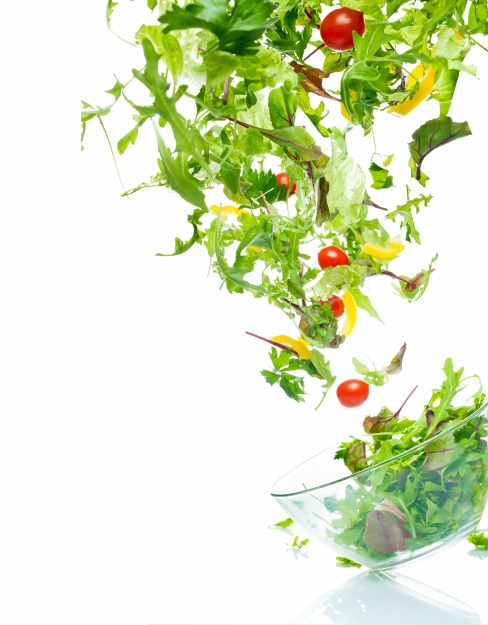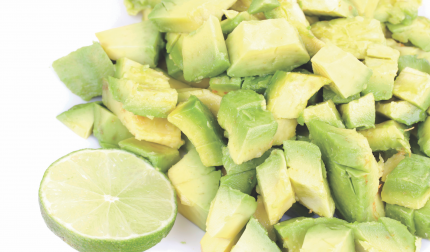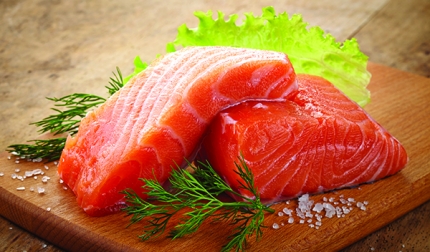The ‘eat clean’ mantra has been popular with athletes for several years. But in my sports nutrition practice I still encounter pros who believe they can afford to eat whatever they want, because they’re already lean and train hard. However, the reality is that even for young athletes quality is king. More and more research shows that ingesting certain substances on a regular basis may weaken your body, and leave you more prone to metabolic dysfunctions.
One new study, led by German and Israeli researchers, found that artificial additives added to processed foods up the chances of developing autoimmune diseases, illnesses in which the immune system attacks tissues and organs, as if they were foreign bodies. The list 100+ autoimmune conditions includes diabetes, as well as celiac disease, lupus, multiple sclerosis, Crohn’s disease, scleroderma, and myesthenia gravis.
Another recent study from York University looked at Americans’ dietary data from the 1970s to recent years and made a significant discovery. In a nutshell, if a 25 year old ate the same number of calories, consumed the same proportion of calories from carbs, proteins, and fat, and exercised the same amount as a counterpart in 1988, they would weight about 10% more today. Scientists speculate that the primary culprit is exposure to chemicals, including those found in processed foods, as well as pesticide residues, and environmental pollutants, such as flame retardants, used on electronics to prevent overheating.
While you may not be able to nix your exposure to every unwanted substance, cleaning up your diet can dramatically curb the “chemical soup” you may currently be swallowing. To rein it in, and help keep your body clean and lean, put the following four key steps into action:
Ditch anything artificial
This includes diet drinks made with artificial sweeteners, additives that may also be lurking in foods you may not expect such as energy bars, frozen desserts, and even cereal. To scope them out, and any other artificial additives, including colors, flavors, and preservatives, always read the ingredient list on packaged foods. To deserve a place in your pantry, the list should read like a recipe with ingredients you fully recognize. In other words, it should be something you could have made yourself, but didn’t have to.
Eat fewer packaged products
Chemicals found in food packaging have been implemented as one perpetrator of metabolic disruption. To lessen your exposure trade packaged items for more fresh fare. For example, instead of a packaged snack, reach for a piece of fresh fruit and a small handful of almonds.
Go organic
The York University researchers point out that Americans are eating more meat today than a few decades ago, and most of it is raised using hormones and antibiotics, factors that may impact immunity. Considering that the average American eats 74 pounds of red meat each year, compared to just 6.5 pounds of pulses (beans, lentils, and peas), going both grass fed and organic can significantly alter what you’re exposing your body to. Organic plant foods can also curb your ingestion of pesticide residues. If it’s not practical to go 100% organic, prioritize three things: animal-based foods; foods you eat daily; and the types of produce that tend to either contain the highest levels of pesticide residues, or the most toxic types. For the latter check out the Dirty Dozen app, which is updated regularly based on new data.
Reject fast food
I recently showed a professional athlete the ingredient list on a fast food chicken sandwich he thought “wasn’t so bad.” In addition to being over a paragraph long, it read like a chemistry experiment, and even the pickles contained food coloring, added to brighten their hue. If you’re curious about exactly what’s in any of the fast food items you still nosh on, jump online and search beyond calorie or sugar info straight to the ingredients. It’s by far the most important factor that determines any food’s quality. And if you’re out and about and need something quick, pull up an app such as Food Tripping that allows you to search via GPS for nearby healthy food markets, juice joints, artisan food shops, and even farmer’s markets.
Cynthia Sass is a sports nutritionist, and Board Certified as a Specialist in Sports Dietetics. She is currently the nutrition consultant to the New York Yankees, and previously consulted for three other professional teams. Sass also works with professional and competitive athletes in numerous sports through her private practice in New York City, Los Angeles, and long-distance. She can be reached via CynthiaSass.com.





